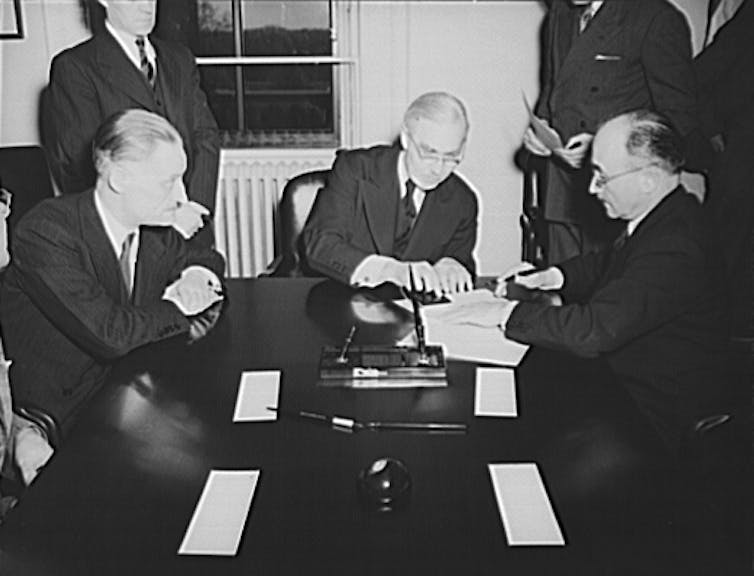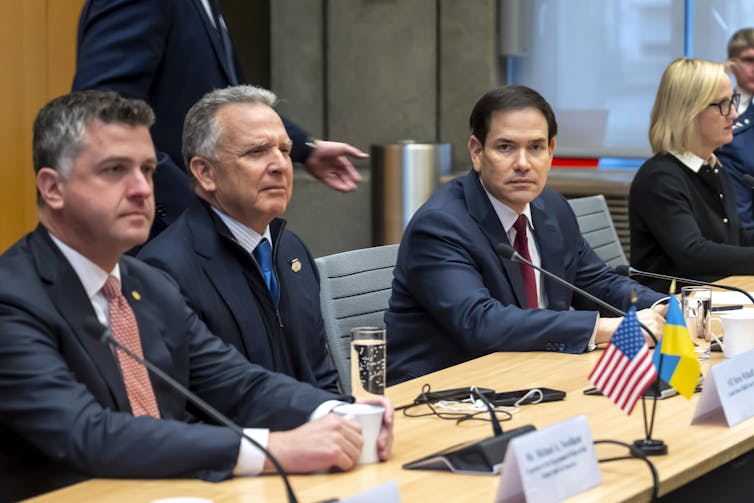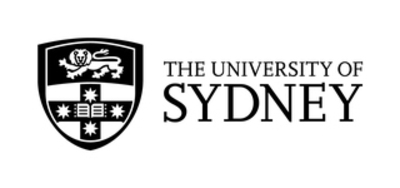- Home
Edition
Africa Australia Brasil Canada Canada (français) España Europe France Global Indonesia New Zealand United Kingdom United States Edition:
Global
Edition:
Global
- Africa
- Australia
- Brasil
- Canada
- Canada (français)
- España
- Europe
- France
- Indonesia
- New Zealand
- United Kingdom
- United States
 Academic rigour, journalistic flair
Ukraine’s peace talks reveal the risks of replacing diplomats with dealmakers
Published: November 28, 2025 4.52pm GMT
Alexandros Koutsoukis, University of Lancashire
Academic rigour, journalistic flair
Ukraine’s peace talks reveal the risks of replacing diplomats with dealmakers
Published: November 28, 2025 4.52pm GMT
Alexandros Koutsoukis, University of Lancashire
Author
-
 Alexandros Koutsoukis
Alexandros Koutsoukis
Lecturer in International Relations, University of Lancashire
Disclosure statement
Alexandros Koutsoukis does not work for, consult, own shares in or receive funding from any company or organisation that would benefit from this article, and has disclosed no relevant affiliations beyond their academic appointment.
Partners
University of Lancashire provides funding as a member of The Conversation UK.
View all partners
DOI
https://doi.org/10.64628/AB.j9vqh6py5
 Steve Witkoff has been handling negotiations with Russia over a Ukraine peace plan.
Sarah Yenesel / EPA
https://theconversation.com/ukraines-peace-talks-reveal-the-risks-of-replacing-diplomats-with-dealmakers-270827
https://theconversation.com/ukraines-peace-talks-reveal-the-risks-of-replacing-diplomats-with-dealmakers-270827
Link copied
Share article
Steve Witkoff has been handling negotiations with Russia over a Ukraine peace plan.
Sarah Yenesel / EPA
https://theconversation.com/ukraines-peace-talks-reveal-the-risks-of-replacing-diplomats-with-dealmakers-270827
https://theconversation.com/ukraines-peace-talks-reveal-the-risks-of-replacing-diplomats-with-dealmakers-270827
Link copied
Share article
Share article
Copy link Email Bluesky Facebook WhatsApp Messenger LinkedIn X (Twitter)Print article
Recent reports about the role of Donald Trump’s special envoy, American businessman Steve Witkoff, in the Ukraine peace negotiations have raised wider questions about why political leaders turn to business figures in high-stakes diplomacy – and whether this can ever work.
A leaked recording of Witkoff advising Russian officials on how to present their proposals to Washington has intensified concern about the direction of the process. Some see it as a symptom of the US president’s personalised foreign policy, while others view the process as a sign of a broader shift away from professional diplomacy altogether.
Diplomacy is often portrayed as the preserve of seasoned professionals, and for good reason. Skilled negotiators such as the UK’s Jonathan Powell – who played a key role in the Northern Ireland peace process – understand how to manage escalation, read political constraints and build agreements that can survive leadership changes.
Yet political outsiders sometimes play constructive roles. Businesspeople can think creatively, take risks that cautious officials avoid and open up transactional trade-offs that traditional diplomats might have dismissed as impossible.
When diplomatic processes are stuck and international pressures are high, a different perspective can widen the space for compromise and create opportunities for what earlier leaders could not achieve: a working deal.
One of history’s most striking examples of a businessman-turned-diplomat is Jean Monnet. After starting his career in his family’s cognac business, Monnet was appointed by the French government in 1939 to coordinate Franco-British war supplies.
He was one of the key figures to propose and advocate the idea that became the Lend-Lease Act of 1941 to the then-US president, Franklin D. Roosevelt. This agreement saw the US provide military and other supplies to its European allies without the need for immediate payment.
 Jean Monnet (right) at the signing of the Lend-Lease Act in 1941.
United States Library of Congress / Wikimedia Commons
Jean Monnet (right) at the signing of the Lend-Lease Act in 1941.
United States Library of Congress / Wikimedia Commons
Monnet later conceived the plan that led to the 1950 Schuman Declaration. This produced the European Coal and Steel Community and laid the foundations for the European Economic Community, which eventually evolved into the EU.
What made Monnet successful was not only his creativity, positive political vision and ability to work behind the scenes. He was helped by a political context in which the US and Europe shared a desire to find a way to unite. This contributed to effective, cooperative and stable outcomes.
Strengths like those displayed by Monnet only matter when business envoys operate within political contexts and organisational structures that keep their transactional instincts in check. Unlike Monnet, Witkoff is operating within a context that amplifies – rather than restrains – these tendencies.
Dangerous tendencies
Witkoff’s first tendency is to lean towards a “victor’s peace”. His advising of Russian officials on how to persuade Trump of their peace plan reflects a transactional mindset that prioritises what is politically easy for the presumed victor, rather than what is just or stable.
But if negotiations begin from the assumption that Russia will ultimately win the war, and therefore Ukraine must accept the terms of its anticipated defeat sooner rather than later, the result may look less like a lasting peace and more like a humiliating capitulation.
This fear has already been voiced by European leaders. The French president, Emmanuel Macron, warned on November 25 that Europe cannot support “a peace that is in essence a capitulation” as this would leave Ukraine weakened and Russia emboldened.
Witkoff’s second tendency is to focus on the outcome of the negotiations rather than the process, neglecting to realise that peace agreements endure only when they are recognised as legitimate by those who must live with them.
The carefully calibrated balance of coercion and consent is the real art of diplomacy, and requires appreciating how the defeated can learn to live with defeat and not see it as humiliation. This occurred in Japan after the second world war, where defeat was gradually transformed into pride in a new liberal pacifist culture.
Witkoff’s third tendency is that he, like many businesspeople, appears to view negotiations as direct dealings between the most powerful players. This is what I have referred to in my research as the “great power bias”.
Approaching negotiations in this way can reinforce the idea that the US and Russia are the “real” players in the peace negotiations, while Ukraine and its European allies become peripheral. This could result in a deal based on the idea that the strongest party does what it wants and the weakest suffers what it must.
 Steve Witkoff and the US secretary of state, Marco Rubio, at talks over ending the war in Ukraine in Geneva, Switzerland, on November 23.
Martial Trezzini / EPA
Steve Witkoff and the US secretary of state, Marco Rubio, at talks over ending the war in Ukraine in Geneva, Switzerland, on November 23.
Martial Trezzini / EPA
These three tendencies are manageable on their own. But the danger arises when they all move in the same direction and experience very little pushback. In an era of rising populism and a political environment dominated by Trump’s personalised style, there is little room for such counterweights. Witkoff’s influence is based on proximity to the president, not on a mandate shaped by allies, diplomats or Congress.
Ordinarily, allies would act as a counterweight to such tendencies. Yet Europe’s ability to shape the negotiations is limited by its own dependency. Without greater capacity to support Ukraine militarily or to provide the satellite intelligence on which Kyiv relies to continue fighting the war, European governments are forced to depend on the US even as they question its approach. This leaves them able to offer guidance but with diminished influence on the terms of the negotiation.
Peace in Ukraine will ultimately require a combination of creativity and restraint: an openness to new ideas but within a framework that ensures a degree of fairness, legitimacy and security. Businesspeople can contribute to such a process, but not when their tendencies are unchecked. The balance that makes outsider involvement constructive is precisely what is missing in the case of Ukraine.
- Russia
- Negotiation
- Ukraine
- Donald Trump
- Business
- Give me perspective
- Steve Witkoff
Events
Jobs
-
 Senior Lecturer, Human Computer Interaction
Senior Lecturer, Human Computer Interaction
-
University Lecturer in Early Childhood Education
-
 Case Specialist, Student Information and Regulatory Reporting
Case Specialist, Student Information and Regulatory Reporting
-
 Lecturer in Paramedicine
Lecturer in Paramedicine
-
 Associate Lecturer, Social Work
Associate Lecturer, Social Work
- Editorial Policies
- Community standards
- Republishing guidelines
- Analytics
- Our feeds
- Get newsletter
- Who we are
- Our charter
- Our team
- Partners and funders
- Resource for media
- Contact us
-
-
-
-
Copyright © 2010–2025, The Conversation
 Senior Lecturer, Human Computer Interaction
Senior Lecturer, Human Computer Interaction
 Case Specialist, Student Information and Regulatory Reporting
Case Specialist, Student Information and Regulatory Reporting
 Lecturer in Paramedicine
Lecturer in Paramedicine
 Associate Lecturer, Social Work
Associate Lecturer, Social Work
